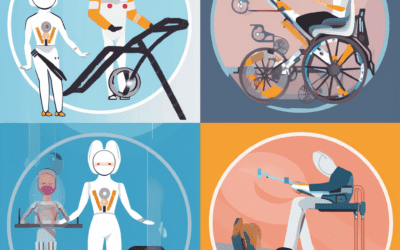How Can I be Smarter with My Money?
Introduction: Money Matters
Managing money can be challenging, but with some smart strategies, anyone can gain financial control. So, how can you be smarter with your money? Let’s explore some practical tips that can make your money work harder for you.
Create a Budget and Stick to It
A budget is like a roadmap for your money. It helps you track your income and expenses, ensuring you have a clear picture of where your money is going. Start by listing all your income sources and then categorize your expenses. Determine your needs versus wants and set spending limits accordingly. Remember, the key is to stick to your budget and avoid impulsive purchases.
- List all your income sources, including your allowance, part-time job, or any other money coming in.
- Categorize your expenses to easily see where your money is being spent. Examples include essentials like food, transportation, and rent, as well as non-essentials like eating out or buying new gadgets.
- Set spending limits that align with your budget. Aim to prioritize your needs and allocate some money for savings.
Save Regularly
Saving money is an essential habit that can help you achieve financial independence. By putting aside a portion of your income regularly, you can build an emergency fund for unexpected expenses and work towards achieving your goals.
- Pay yourself first: Set up an automatic transfer to your savings account whenever you receive your income. Treating savings as a fixed expense ensures regular contributions.
- Start small if necessary: Even saving a small amount regularly can add up over time. Remember, every little bit counts.
- Avoid withdrawing from your savings account unless it’s for emergencies. Keeping your savings separate from your everyday spending can deter impulsive spending.
Avoid Debt or Manage It Wisely
Debt can be a financial burden if not managed carefully. While it’s sometimes necessary, it’s essential to approach it with caution.
- Minimize borrowing: Only take on debt for essential purposes, such as education or a home. Avoid borrowing for unnecessary purchases.
- If you have a credit card, pay off the balance in full every month to avoid interest charges. Credit cards can be convenient, but high-interest rates can quickly accumulate debt if balances are not paid promptly.
- If you have existing debt, create a repayment plan by focusing on paying off high-interest debts first. Consider consolidating debts or seeking professional advice if needed.
Make Wise Purchase Decisions
Being smarter with your money also involves making wise purchase decisions to get the most value for your hard-earned cash.
- Compare prices and shop around before making significant purchases. This helps you find the best deals and avoid overspending.
- Avoid impulse buying: Think carefully before making a purchase. Ask yourself if you really need it or if it aligns with your goals and priorities. Waiting 24 hours before buying can help reduce impulse purchases.
- Consider buying used or second-hand items when it makes sense, especially for things like textbooks, furniture, or electronics. It can save you a significant amount of money.
Stay Informed and Seek Financial Education
Being financially savvy requires knowledge. Therefore, it’s important to stay informed and increase your financial literacy.
- Read books, articles, or blogs about personal finance to learn from experts. Knowledge is power when it comes to making smart money decisions.
- Seek advice from trusted sources: Talk to a financial advisor or older family members who have experience in managing money.
- Learn to differentiate between needs and wants: Recognize the difference between essential expenses and non-essential indulgences. This will help you make more conscious spending decisions.
Conclusion: Smart Money Habits Pay Off
By following these smart money practices — creating a budget, saving regularly, managing debt wisely, making wise purchase decisions, and seeking financial education — you can take control of your finances and work towards a brighter future. Remember, being smarter with your money today can lead to greater financial security and freedom in the long run.












